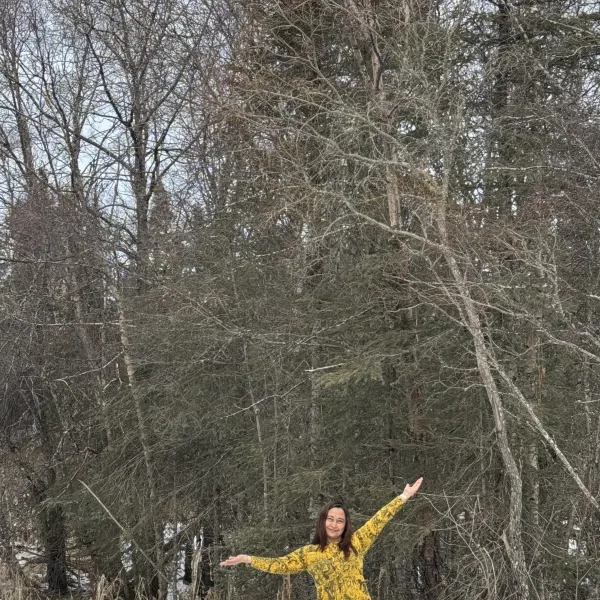
Scenes from Lira's first year in Alaska
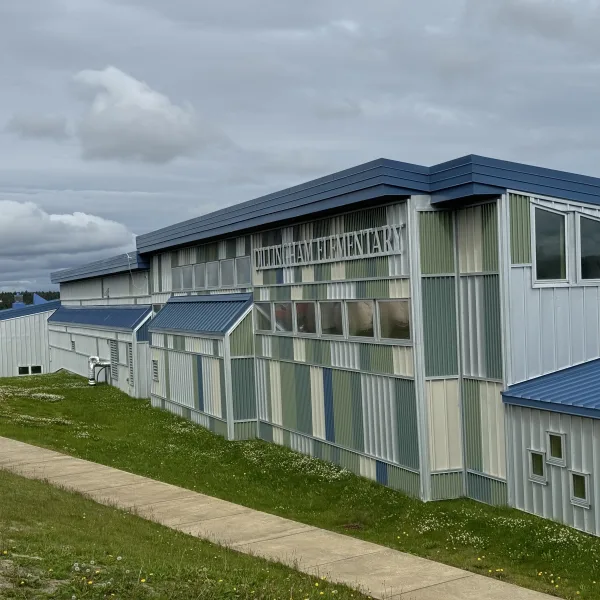
Scenes from Lira's first year in Alaska

Scenes from Lira's first year in Alaska
Lira Rubio • June 18, 2025
I still clearly remember the opposing emotions I had upon receiving my contract to teach in Alaska. I immediately signed it without realizing that the weather here is completely different from that of the Philippines, where I proudly come from. When I thought of snow, I became excited. However, I was unaware of how cold it is. All I knew was that I was about to step another milestone of my life and another remarkable journey of my teaching career was about to unfold.
It was my first time flying alone coupled with array of emotions. The hardest part was being miles away from my loved ones, caught between my dreams and being with my family. I pursued my dreams with the belief that I was doing it for them. As the days passed, I started finding answers to the question: Why Alaska? This place offers me a unique opportunity and a rollercoaster experience. With deep cultural roots and strong support networks, I found a Filipino community maintaining close ties to our heritage through traditions, food, language, and celebrations. Our Friday-get-together serves as our bonding experience, a way to relax and unwind, a moment for celebration, a support system, and of course not to mention our potluck, karaoke, playing cards and a never-ending tale of late-night chatting and laughing.
Dillingham town keeps a tight-knit vibe that helps me feel at home. This place offers access to Alaska’s inherent beauty that encourages calmness and mental clarity. Nature is incredibly beautiful; it gives me inspiration, serenity, and a strong sense of connectedness to the natural world. I'm constantly in awe of nature's wonders, which range from majestic mountain ranges covered in snow to tranquil rivers and lakes, lush woods, and expansive tundra. I adore the region's subarctic environment, which is marked by lengthy, snowy winters and moderate, rainy summers. Yes, the weather may be cold, but the warmth of people's smiles makes it feel warm. Truly, a home away from home.
I had a mentor provided by the school district when I first started teaching. I commenced with the support of my mentor. I immersed myself in Alaska's Cultural and Curriculum Standards, using them as a guiding framework in my daily teaching-learning instruction.
Moreover, the school district has been so generous of their resources with all my endeavors and makes sure that I am well supported. I couldn't imagine starting, working, and adjusting to a new world while experiencing the opposite of what I had hoped for. I am always and forever grateful that I got the best leaders, colleagues, and friends. With the continuous professional development provided, I continue to thrive and advance forward professionally.



Being a newly hired teacher in the Dillingham City School District, I have got the opportunity to be a part of the C3 Program of Alaska Humanities Forum with the support of Bristol Bay Foundation. The Cross-Cultural Competence (C3) Educator Program helps teachers develop strong cultural identities while considering how they relate to their students and communities, how they form relationships, and how they teach. C3 leads participants through a cultural induction program that consists of a community mentorship program, a graduate-level university course, supportive events during the school year, and a cultural immersion experience. Through C3, educators get the resources, encouragement, and self-assurance they need to create inclusive classroom environments that respect and reflect the cultures of their communities in a sustainable manner.
Transformative Experience
When I arrived, I was struck by the serene beauty of the surroundings, which include vast tundra and majestic mountains, fresh perfume of the air accompanied by the wood smoke, citrusy spruce trees and fish drying racks. It was my first time flying in a small plane, but its charm replaced my fears with overwhelming excitement.
The neighborhood welcomed us cordially but there’s an understanding that respect and patience are to be contemplated- I am stepping into their world. Each day followed the rhythms of nature and the summer season. I went fishing, smoked and chopped salmon. Gained knowledge on making fry bread and akutaq (Alaska ice cream), beading, kuspuk sewing, fabric braiding, earring making using porcupine quill and lynx fur and went berry picking. Elders shared stories as you work, teaching not just skills but also values. The deep respect for nature is transpired into every activity. I learned that every part of an animal is used, nothing is wasted, and gratitude is always given.
Elders reminded us that information is learned by practice and observation, and that listening is more important than talking. Beyond merely learning survival skills, I also acquired a greater understanding of Indigenous wisdom, resilience, and the close bond between human beings and the earth. I left the cultural camp feeling deeply transformed, with a newfound respect and connection to Alaska Native customs—wisdom I can carry forward and apply within my own community
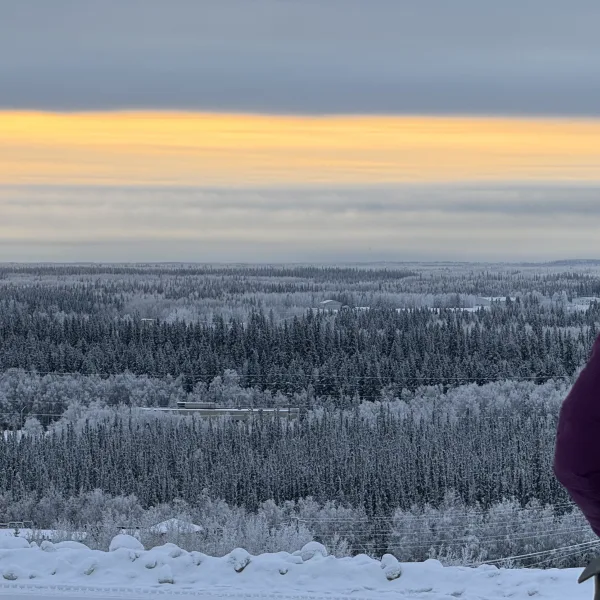
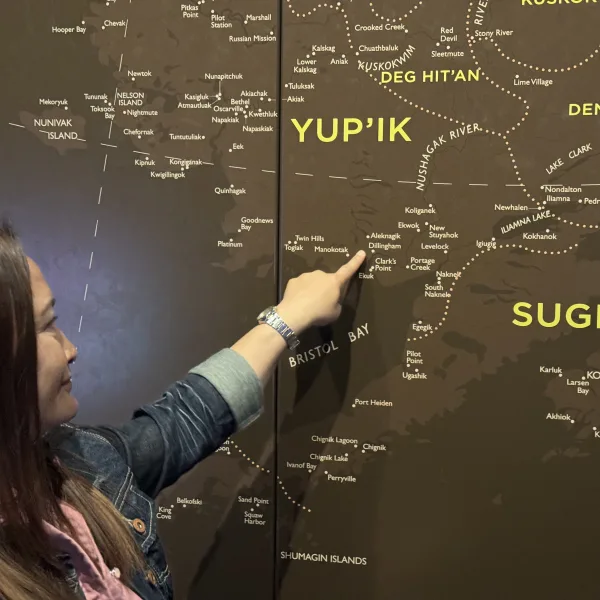
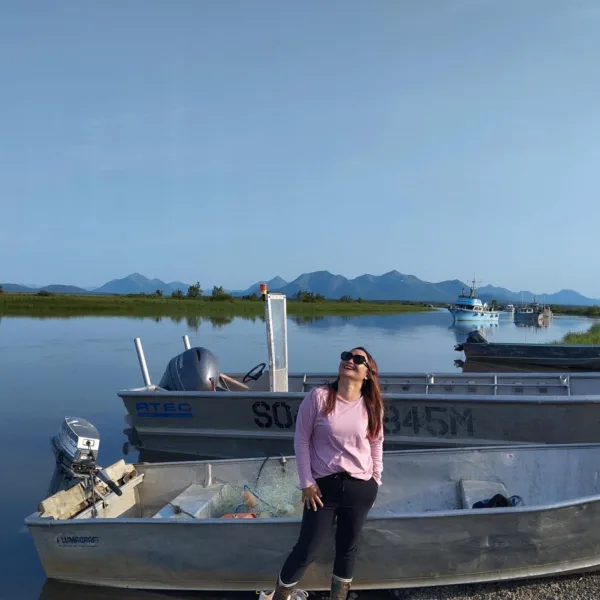
Future Direction
I remain fervently focused on the future, confident that I can make the most of the knowledge gained from this experience. I reaffirm the importance of adapting to diverse teaching philosophies while maintaining an unwavering commitment to growth and teaching excellence. This journey—undoubtedly one of the most treasured moments of my life—has been a rich tapestry of challenges, learning opportunities, and personal growth.
I believe that teaching is a continuous journey, and I must never stagnate as an educator. Expanding my knowledge and equipping myself better for my students is essential. Embracing flexibility and openness to change will help me grow in both teaching and learning. I will continue to collaborate and remain committed to effectively guiding my students to success.
I take great joy in introducing students to the world beyond their immediate surroundings, expanding their perspectives and helping them develop a deeper sense of self. In addition to grounding lessons in the context of Alaska and their way of life, I expose students to similar themes from around the world. Learning about other cultures provides them with a pathway to deeply appreciating their own heritage. By briefly exploring what others have and comparing it to their own resources, they gain a balanced perspective and a greater sense of value in what they possess.
Being a culturally responsive teacher means truly understanding my students' backgrounds and meeting them where they are to provide them with the education they genuinely deserve. Using relevant and appropriate teaching approaches that support student learning and help them reach their full potential requires a deep understanding of their backgrounds. When teaching and learning are contextualized and localized, students perform better academically, as they can relate through firsthand knowledge and experience.
Although it undoubtedly has its own set of difficulties, teaching in rural Alaska can be a very special and fulfilling experience. Teaching in an Alaskan village is a very special and frequently life-changing experience. Building genuine relationships and trust with students and their families requires an understanding of and adherence to local customs and cultural norms.
Dealing with diverse sets of students, the weather, and the neighborhood where I initially felt different and alone made things difficult at first. But as the days and months passed, I realized that I have a lot of support. I feel secure and assured that I am in good hands because of the administration, my coworkers, the Filipino community, and all else Dillingham has to offer, even though it's far away from home. I've discovered a new place where I can be myself and keep developing as a teacher and as an individual.
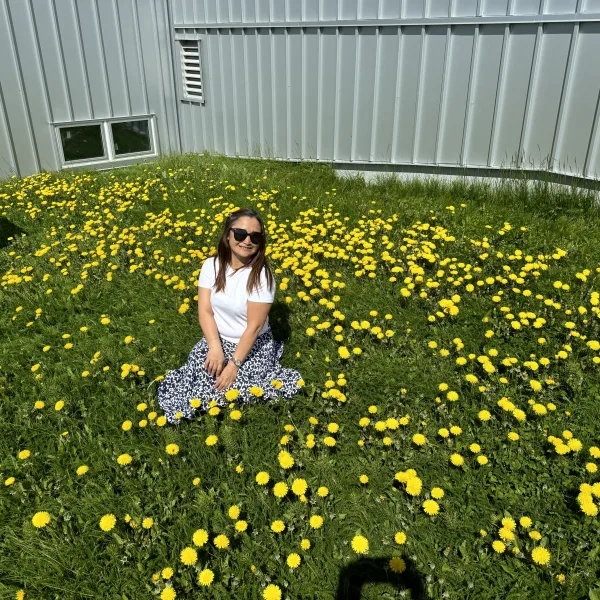
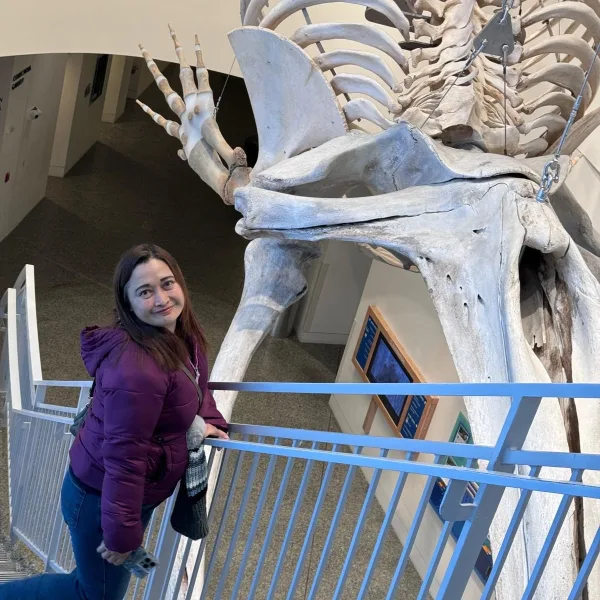
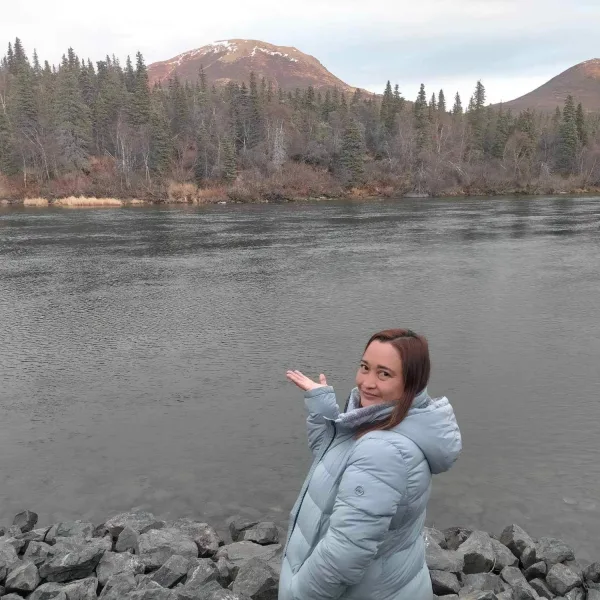
Every day, I get to know my students on a deeper level, and I'm driven to do everything in my power to help them. I am excited that I can improve the lives of those entrusted to my care with my commitment and enthusiasm. I have a strong conviction making a difference in the lives of my learners. I enjoy working with children, especially now that I am overcoming new obstacles every day and turning them into chances to advance in my career and use my teaching to positively impact others' lives.
Overall, being a Filipino teacher in Alaska is likely a blend of challenges, adaptation, and a lot of meaningful cultural exchange. Navigating the challenges while adapting to a new cultural landscape must take a lot of resilience, but it also opens the door to meaningful exchanges between my Filipino heritage and the Indigenous cultures of Alaska.
Now, I finally know the answer to that question—Why Alaska? My story speaks for itself. Mabuhay!
The Alaska Humanities Forum is a non-profit, non-partisan organization that designs and facilitates experiences to bridge distance and difference – programming that shares and preserves the stories of people and places across our vast state, and explores what it means to be Alaskan.
February 16, 2026 • Colleen Lomenick
January 28, 2026 • Polly Carr
January 20, 2026 • Shoshi Bieler